The healthcare sector in India is one of the largest and fastest growing industries in India. In 2017, the industry stood at US$ 61.79 billion, and by 2023, it is expected to double by US$ 132.84 billion.
Yet, the Indian healthcare sector is in an ailing condition, as a majority of the investments do not reach the population that is in dire need.
The problem in India is, private hospitals provide excellent care but are beyond the reach of most people. And public hospitals are affordable but are overcrowded and lacks responsiveness.
While the government seems to be doing a lot by allocating a larger budget yearly, it is still far cry from what the country actually needs. In fact, India spends less than 2% of its GDP on healthcare, 1.4% to be exact, making it one of the lowest investors in the sector globally.
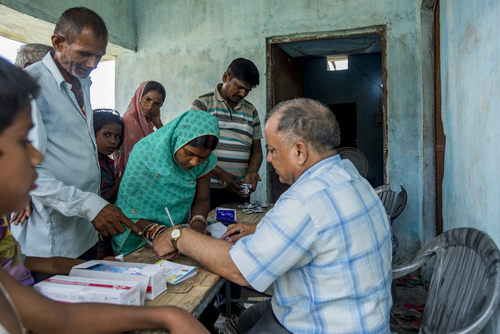
This is where investments from private sectors as Corporate Social Responsibility (CSR) in healthcare can make a big difference to society at large.
What’s the current trend in CSR for healthcare in India?
While healthcare does receive a significant amount of funds from the corporations, much of it is focused on health camps and building hospitals or upkeeping its facilities. All these solutions are merely temporary patches. The country needs solutions that will eradicate some of the fundamental problems.
1. Imbalance in infrastructure and population ration
Given the growing population of the country, the current infrastructure is greatly imbalanced. To the point that the doctor-patient ratio in India is 1:1700. This is dangerously low. Major investments in India primarily focused on urban centres while in rural areas are left with a bare minimum.
Under its ‘Comprehensive Healthcare Initiatives’, the NHPC Limited has been providing medical facilities, qualified doctors and medical attendants, in many rural areas of Assam. They also actively partner with government agencies in bringing awareness regarding many diseases.
2. Rural areas need more doctors
Besides infrastructure, the country is short of doctors, particularly in rural areas. While many companies are working in improving in this area, there still a huge gap that needs to be filled. People in rural areas need access to quality healthcare and the government can provide incentives to doctors to spend time in rural/remote areas and take healthcare where it is desperately needed.
Hindustan Petroleum Corporation Limited runs ‘Project Dhanwantari’ across the country. Through this project, they provide basic medical needs for people in remote rural areas by door-to-door with Mobile Medical Vans (MMVs).
3. Contribution to medical insurance
Quality healthcare for many is unaffordable in India. Rather than offering assistance with one-time or temporary treatments, companies could rather offer health insurance in a brand agnostic way, or tie up with pharma companies and provide cheaper medicines.
4. Focus more on mental illness
Support and awareness for mental illness are almost unheard of in rural areas. While the government offers very little support, many organizations like Infosys, TCS, and IDFC are taking up this cause slowly and even those are focused on urban areas only.
There is a lot that organizations can do to make quality healthcare available to all. There is a lot of money and a lot of intent too. All we need is proper channelling.
5. Reaching the unreachable
India is a country with more than 60% of the population living in rural areas and a low level of health facilities. Many villagers are forced to travel hundreds of kilometres to access basic medical treatments and follow up check-ups. In this case, telemedicine can be a great way to help these communities get the best treatment or diagnosis possible.

Parimal Enterprise, a pharma company, has taken up telemedicine as their corporate social responsibility to help the poor and rural households in remote areas. With their initiative like Dox-in-Box, Piramal’s telemedicine projects help people in remote areas access trained doctors. They have set up over 44 telehealth centres across the country, many in partnership with state governments. And help provide relevant information, screenings and follow-ups to patients.
6. Quality healthcare to remote areas
Rural healthcare is one of the biggest challenges the Health Ministry of India is facing. Though the government implementing a lot of policies and programs in trying to reach out to remote places, the effectiveness of these programs is questionable.
Wockhardt Foundation’s MOBILE1000 initiative is one program that has been spearheading in this area. Their aim is to provide free primary healthcare to poor Indians in rural India. With a fully equipped Mobile Health Van, an MBBS doctor and medicines providing ADCR (Awareness, Diagnosis, Cure, and Referral), they have helped over 171.47 lakh patients in different villages across the country.
7. Make India more healthy
India is known for having one of the largest populations of undernourished children in the world. So much so that even basic human rights are denied to millions, leading to stunted growth. Corporate houses can channelise their CSR fund towards building a healthy nation.
Dabur India’s ‘Nutrition Program’ is aimed at eradicating hunger, poverty and malnutrition through provision of food, nutrition supplement, clothes etc. Through this program, they have partnered with various government agencies and NGOs to supplement the nutrition needs of the poor and needy.

Health is a responsibility for one and all. For a country to be prosperous it requires its citizen to be in a healthy condition and think beyond basic survival. While the government is working on many projects, and a helpful hand from the corporate houses can make a huge difference.
 Another important responsibility of a Responsibility Manager is to ensure that the company is in compliance with all relevant laws and regulations related to CSR. This includes monitoring and reporting on the company’s environmental impact and working with government agencies to ensure that the company is meeting all necessary standards. The manager must also be reasonably familiar with the various CSR initiatives and programs that are being undertaken in India by the social sector.
In addition to these responsibilities, a Responsibility Manager must also have excellent communication and leadership skills. They must be able to effectively communicate the company’s CSR initiatives to both internal and external stakeholders, and must be able to inspire and motivate employees to get involved in these initiatives. They must also have strong project management skills, and be able to oversee the implementation of CSR projects from start to finish.
The growth of CSR as a career in India has been significant in recent years. According to a report by the Confederation of Indian Industry (CII), the CSR market in India is expected to grow at a CAGR of 15% between 2020 and 2025. This is driven by increasing awareness of the importance of CSR among both companies and consumers, as well as government initiatives and regulations that encourage companies to engage in CSR activities.
Another important responsibility of a Responsibility Manager is to ensure that the company is in compliance with all relevant laws and regulations related to CSR. This includes monitoring and reporting on the company’s environmental impact and working with government agencies to ensure that the company is meeting all necessary standards. The manager must also be reasonably familiar with the various CSR initiatives and programs that are being undertaken in India by the social sector.
In addition to these responsibilities, a Responsibility Manager must also have excellent communication and leadership skills. They must be able to effectively communicate the company’s CSR initiatives to both internal and external stakeholders, and must be able to inspire and motivate employees to get involved in these initiatives. They must also have strong project management skills, and be able to oversee the implementation of CSR projects from start to finish.
The growth of CSR as a career in India has been significant in recent years. According to a report by the Confederation of Indian Industry (CII), the CSR market in India is expected to grow at a CAGR of 15% between 2020 and 2025. This is driven by increasing awareness of the importance of CSR among both companies and consumers, as well as government initiatives and regulations that encourage companies to engage in CSR activities.
 Additionally, a study by the Indian Institute of Corporate Affairs found that the number of companies spending on CSR activities in India has increased by 40% between 2014 and 2019. This indicates a growing trend of companies recognizing the value of CSR and investing in these initiatives.
Furthermore, the Companies Act 2013, has played a major role in the growth of CSR as a career in India. Under this act, companies with a net worth of INR 500 crore or more, or a turnover of INR 1000 crore or more, or a net profit of INR 5 crore or more, are required to spend at least 2% of their average net profit for the immediately preceding three financial years on CSR activities. This has led to an increase in the number of CSR positions and CSR Departments in companies.
In terms of job opportunities, there has been a significant increase in the number of CSR-related job openings in India in recent years. According to data from the National Skill Development Corporation (NSDC), the demand for CSR professionals in India is expected to grow by 20-25% in the next five years. This includes positions such as CSR managers, sustainability managers, and CSR coordinators.
Those interested in a career as a Responsibility Manager in India should consider obtaining a degree in fields such as environmental science, business administration, or social work. Additionally, relevant experience in CSR or sustainability can be beneficial. In terms of career progression, a Responsibility Manager can move up to a higher position in the company such as CSR Head or Sustainability Head. They can also move to different sectors like NGOs, consulting firms and government agencies.
To sum up, a career as a Responsibility Manager in India is an exciting and challenging opportunity for those who are passionate about making a positive impact on society and the environment. It requires strong leadership, communication, and project management skills, as well as an understanding of corporate social responsibility and sustainability. With increasing demand for these skills, a career as a Responsibility Manager can be a rewarding and fulfilling choice for those interested in making a difference in the world.
Additionally, a study by the Indian Institute of Corporate Affairs found that the number of companies spending on CSR activities in India has increased by 40% between 2014 and 2019. This indicates a growing trend of companies recognizing the value of CSR and investing in these initiatives.
Furthermore, the Companies Act 2013, has played a major role in the growth of CSR as a career in India. Under this act, companies with a net worth of INR 500 crore or more, or a turnover of INR 1000 crore or more, or a net profit of INR 5 crore or more, are required to spend at least 2% of their average net profit for the immediately preceding three financial years on CSR activities. This has led to an increase in the number of CSR positions and CSR Departments in companies.
In terms of job opportunities, there has been a significant increase in the number of CSR-related job openings in India in recent years. According to data from the National Skill Development Corporation (NSDC), the demand for CSR professionals in India is expected to grow by 20-25% in the next five years. This includes positions such as CSR managers, sustainability managers, and CSR coordinators.
Those interested in a career as a Responsibility Manager in India should consider obtaining a degree in fields such as environmental science, business administration, or social work. Additionally, relevant experience in CSR or sustainability can be beneficial. In terms of career progression, a Responsibility Manager can move up to a higher position in the company such as CSR Head or Sustainability Head. They can also move to different sectors like NGOs, consulting firms and government agencies.
To sum up, a career as a Responsibility Manager in India is an exciting and challenging opportunity for those who are passionate about making a positive impact on society and the environment. It requires strong leadership, communication, and project management skills, as well as an understanding of corporate social responsibility and sustainability. With increasing demand for these skills, a career as a Responsibility Manager can be a rewarding and fulfilling choice for those interested in making a difference in the world.


 Some key statistics on ESG investing in India include:
Some key statistics on ESG investing in India include:
 One of the key reasons why ESG investing is gaining popularity is that it is closely linked to achieving the
One of the key reasons why ESG investing is gaining popularity is that it is closely linked to achieving the 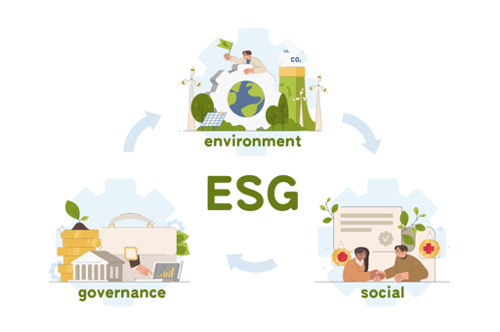 Some key opportunities and initiatives for ESG investing in India include:
Some key opportunities and initiatives for ESG investing in India include:

 Corporate Social Responsibility (CSR) has transformed from an optional initiative of a business into a highly professionally managed business segment, thanks to the mandate set by the Government of India through the Companies Act of 2013. The mandate has driven corporations and large businesses to relook and rethink their CSR initiatives to align with their own business visions and missions. Specific CSR frameworks and teams have been set up to strategise, plan, and execute the company’s yearly CSR funding effectively and efficiently to help society’s environmental, social, and economical development.
The business-like approach to CSR drives the need for qualified, skilled professionals to handle the project at various levels. There is a demand for a strategic approach to philanthropy, and that demand drives the need for able human capital. Many institutes in India offer specialised CSR training programs and courses to prepare eager and interested novices with essential skills, knowledge and hands-on experience to enter the CSR verticals of many highly coveted companies in India Inc.
Corporate Social Responsibility (CSR) has transformed from an optional initiative of a business into a highly professionally managed business segment, thanks to the mandate set by the Government of India through the Companies Act of 2013. The mandate has driven corporations and large businesses to relook and rethink their CSR initiatives to align with their own business visions and missions. Specific CSR frameworks and teams have been set up to strategise, plan, and execute the company’s yearly CSR funding effectively and efficiently to help society’s environmental, social, and economical development.
The business-like approach to CSR drives the need for qualified, skilled professionals to handle the project at various levels. There is a demand for a strategic approach to philanthropy, and that demand drives the need for able human capital. Many institutes in India offer specialised CSR training programs and courses to prepare eager and interested novices with essential skills, knowledge and hands-on experience to enter the CSR verticals of many highly coveted companies in India Inc.
 CSR education goes beyond learning to manage CSR initiatives but needs to instil the urge for change and be a factor in changing the socio-economic situation. An in-depth understanding of the significance and impact of CSR projects needs to be instilled through quality CSR education. Helping many more hone their knowledge without putting their life on hold is JNICSR.
Courses Offered:
CSR education goes beyond learning to manage CSR initiatives but needs to instil the urge for change and be a factor in changing the socio-economic situation. An in-depth understanding of the significance and impact of CSR projects needs to be instilled through quality CSR education. Helping many more hone their knowledge without putting their life on hold is JNICSR.
Courses Offered:
 Executive Programme in Innovative CSR will adopt an entrepreneurial approach for the companies’ design and implementation of CSR and Sustainable Development initiatives. The programme targets professionals working in corporate, government and non-governmental organisations. Bringing together the interdisciplinary themes in economics, development, social policy, entrepreneurship and business management, the Executive Programme is designed to provide an interdisciplinary perspective on CSR and emerging models in CSR practices across business enterprises.
Course Objective:
The programme will enable the participants to understand better sustainability challenges, drivers and tools and approaches to CSR and sustainable development. Participants will learn the socio-economic barriers and drivers that lead to poverty and hunger, gender inequality, violation of human rights, and environmental issues and see how businesses can progressively deal with such development challenges through innovation and creativity.
Executive Programme in Innovative CSR will adopt an entrepreneurial approach for the companies’ design and implementation of CSR and Sustainable Development initiatives. The programme targets professionals working in corporate, government and non-governmental organisations. Bringing together the interdisciplinary themes in economics, development, social policy, entrepreneurship and business management, the Executive Programme is designed to provide an interdisciplinary perspective on CSR and emerging models in CSR practices across business enterprises.
Course Objective:
The programme will enable the participants to understand better sustainability challenges, drivers and tools and approaches to CSR and sustainable development. Participants will learn the socio-economic barriers and drivers that lead to poverty and hunger, gender inequality, violation of human rights, and environmental issues and see how businesses can progressively deal with such development challenges through innovation and creativity. 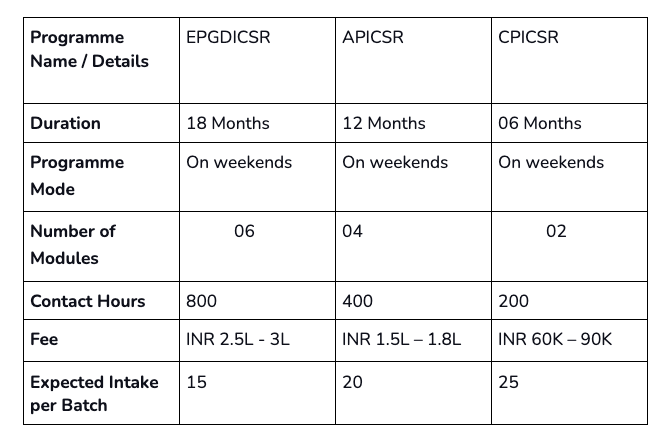
 Intending to provide CSR based unique knowledge, the ICAI (The Institute of Chartered Accountants of India) offer a 4-weeks duration certificate course to Chartered Accountants.
Course Objective:
This online Certificate course on Corporate Social Responsibility intends to equip the participants to understand the rules and regulations pertaining to CSR. The Companies Act, 2013 provides a unique CSR framework not applicable anywhere else globally; hence there are no benchmarks and learnings of a model like this. The objective of legislation needs to be viewed against two key ideas. The Corporations Act as partners in the social development process of the country and strengthen the social responsibility of business.
Intending to provide CSR based unique knowledge, the ICAI (The Institute of Chartered Accountants of India) offer a 4-weeks duration certificate course to Chartered Accountants.
Course Objective:
This online Certificate course on Corporate Social Responsibility intends to equip the participants to understand the rules and regulations pertaining to CSR. The Companies Act, 2013 provides a unique CSR framework not applicable anywhere else globally; hence there are no benchmarks and learnings of a model like this. The objective of legislation needs to be viewed against two key ideas. The Corporations Act as partners in the social development process of the country and strengthen the social responsibility of business.

 The world’s biggest most influential toy brand that has streamlined into amusement parks and other wings, focuses on teaching through what they know best – “PLAY.” Children learn so much more when they are spending time playing and their CSR revolves around developing young minds with the help of Play Agents (employees who are trained by LEGO). While the numbers have risen to over 3000 Play Agents today, all of whom have helped communities around the globe to take a step closer to experiential learning, LEGO looks forward to contributing more to children across the globe.
MICROSOFT
The world’s biggest most influential toy brand that has streamlined into amusement parks and other wings, focuses on teaching through what they know best – “PLAY.” Children learn so much more when they are spending time playing and their CSR revolves around developing young minds with the help of Play Agents (employees who are trained by LEGO). While the numbers have risen to over 3000 Play Agents today, all of whom have helped communities around the globe to take a step closer to experiential learning, LEGO looks forward to contributing more to children across the globe.
MICROSOFT
 When organisations like Microsoft vow to become carbon neutral by 2030 and also to remove the carbon the company has emitted since its founding in 1975, the CSR contribution is colossal. While investing in climate solutions that could help achieve this goal, the company’s bold and public admission of their CSR goals instils more faith in their ethos and creates a transparent workspace for the employees as well. And that adds up to make space for effective CSR policies.
GOOGLE
When organisations like Microsoft vow to become carbon neutral by 2030 and also to remove the carbon the company has emitted since its founding in 1975, the CSR contribution is colossal. While investing in climate solutions that could help achieve this goal, the company’s bold and public admission of their CSR goals instils more faith in their ethos and creates a transparent workspace for the employees as well. And that adds up to make space for effective CSR policies.
GOOGLE
 Google has been taking huge strides in helping children across developing nations to gain access to learn and educate themselves. The multinational tech giant helps organisations that focus on improving education in developing countries and has so far contributed millions to such organisations. By clubbing with organisations like Learning Equality, Google does its bit to close the educational gap.
Note: Here’s what their collaborations brings to the world. To watch, visit their
Google has been taking huge strides in helping children across developing nations to gain access to learn and educate themselves. The multinational tech giant helps organisations that focus on improving education in developing countries and has so far contributed millions to such organisations. By clubbing with organisations like Learning Equality, Google does its bit to close the educational gap.
Note: Here’s what their collaborations brings to the world. To watch, visit their 
 Supporting a cause that corresponds with a company’s skills, research, and understanding in a certain area will be helpful for community partners as well as a win for the company in terms of additional customer visibility and revenue streams.
Supporting a cause that corresponds with a company’s skills, research, and understanding in a certain area will be helpful for community partners as well as a win for the company in terms of additional customer visibility and revenue streams.
 These goals will demonstrate that your approach is having a beneficial influence on your company and that your CSR program is on track. The goals can be more KPI-orientated, like employee levels of engagement, lower customer churn, or online brand sentiment.
These goals will demonstrate that your approach is having a beneficial influence on your company and that your CSR program is on track. The goals can be more KPI-orientated, like employee levels of engagement, lower customer churn, or online brand sentiment.


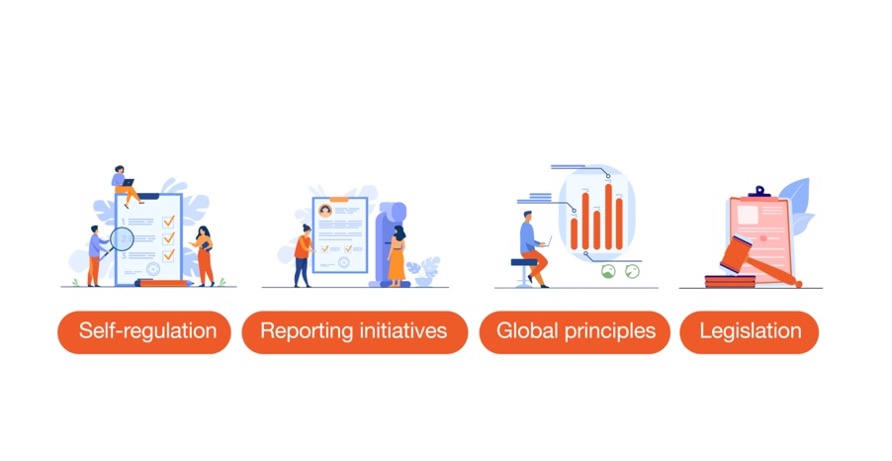 How Can CSR Benefit your Business, On a Personal Scale
How Can CSR Benefit your Business, On a Personal Scale
 CSR COSTS & HOW TO HANDLE THEM
A note for all the CFOs: There are some easy ways to invest and monitor your CSR funding.
CSR COSTS & HOW TO HANDLE THEM
A note for all the CFOs: There are some easy ways to invest and monitor your CSR funding.
 The consumers of today have realigned the way big and small conglomerates look at their day-to-day activities, by making them rethink their ethical and moral business standards. The real question becomes, what specific cost should you be paying attention to when it comes to your corporate social responsibilities. Let’s start with the most important and basic point,
Opportunity costs:
To put it simply, opportunity Costs can be overlooked, as the name suggests. Any activity that could not have been undertaken due to circumstances like certain elements like capital and labour being bound to the aforementioned activity.
Sunk costs:
All primary investments in inventory can be considered as Sunk Costs. These are an essential part of cost management and are something every CFO monitors to maintain good CSR.
Recurrent costs:
increased wages, investment in social insurance, training, benefits for workers etc. fall under Recurrent Costs. These are unavoidable but if planned well, tremendously beneficial.
And why have we chosen these points as the top three points?
With proper understanding of the company’s expenses in the granular level, determines the growth of an organisation’s CSR planning.
TOP CSR TRENDS TO WATCH IN 2021
The consumers of today have realigned the way big and small conglomerates look at their day-to-day activities, by making them rethink their ethical and moral business standards. The real question becomes, what specific cost should you be paying attention to when it comes to your corporate social responsibilities. Let’s start with the most important and basic point,
Opportunity costs:
To put it simply, opportunity Costs can be overlooked, as the name suggests. Any activity that could not have been undertaken due to circumstances like certain elements like capital and labour being bound to the aforementioned activity.
Sunk costs:
All primary investments in inventory can be considered as Sunk Costs. These are an essential part of cost management and are something every CFO monitors to maintain good CSR.
Recurrent costs:
increased wages, investment in social insurance, training, benefits for workers etc. fall under Recurrent Costs. These are unavoidable but if planned well, tremendously beneficial.
And why have we chosen these points as the top three points?
With proper understanding of the company’s expenses in the granular level, determines the growth of an organisation’s CSR planning.
TOP CSR TRENDS TO WATCH IN 2021

 As India is going through the process of globalisation and modernization, many villages are left behind, while the urban centers get the major chunk of attention. Improving the standards and self-reliance of the villagers at the same time preserving their lifestyle, can add great value to the larger development of the country.
Organisations can focus their CSR strategies by partnering with successful NGOs and community based Organisations (CBOs) and work towards upliftment of rural societies.
Wipro is well-known for its large contribution to society through its Wipro Foundation. Many of their projects are long-term multi-year programmes that are focused on build the capacity of the communities in terms of higher awareness and developing a higher degree of self-reliance to handle their own requirements.
Empowering them with employability:
As India is going through the process of globalisation and modernization, many villages are left behind, while the urban centers get the major chunk of attention. Improving the standards and self-reliance of the villagers at the same time preserving their lifestyle, can add great value to the larger development of the country.
Organisations can focus their CSR strategies by partnering with successful NGOs and community based Organisations (CBOs) and work towards upliftment of rural societies.
Wipro is well-known for its large contribution to society through its Wipro Foundation. Many of their projects are long-term multi-year programmes that are focused on build the capacity of the communities in terms of higher awareness and developing a higher degree of self-reliance to handle their own requirements.
Empowering them with employability:
 Youths in villages and slums face extreme hardships in terms of opportunities for being useful to society, as they do not have the necessary skills to be employed or be entrepreneurial.
Focusing on setting up long-term projects, where students after school or college can train themselves to be productive members of society, can uplift the morale of the economically weaker communities.
Mahindra & Mahindra in partnership with Naandi Foundation initiated Mahindra Pride School. The idea was to recruit semi-educated youth from the villages and urban slums, train them and get them corporate jobs.
Educate to recycle:
Youths in villages and slums face extreme hardships in terms of opportunities for being useful to society, as they do not have the necessary skills to be employed or be entrepreneurial.
Focusing on setting up long-term projects, where students after school or college can train themselves to be productive members of society, can uplift the morale of the economically weaker communities.
Mahindra & Mahindra in partnership with Naandi Foundation initiated Mahindra Pride School. The idea was to recruit semi-educated youth from the villages and urban slums, train them and get them corporate jobs.
Educate to recycle:
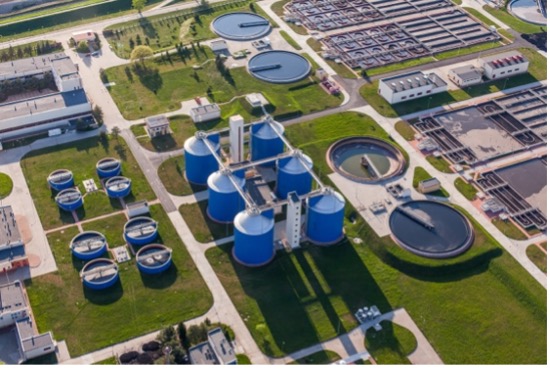 When resources are hard to come by, recycling is the best method to adapt. Especially in rural, marginalized and unprivileged communities, adapting to renewable energy, waste management and resource conservation initiatives can make big difference.
Tata Power runs a programme called the Adhikaar which aims to inform, enable and empower marginalised communities. In collaboration with Rockefeller Foundation, they set up the Tata Power Renewable Microgrid Limited (TPRMG) to enable access to reliable and renewable electricity for 25 million Indians.
In another example, the Hindustan Unilever Foundation (HUF) manages the ‘Water for Public Good’ programme. The objective of this programme is to empower local communities to govern water resources and enhance farm-based livelihoods through the adoption of judicious water management practices. Since 2010, HUF has supported grassroots interventions in 53 districts with 23 NGO partners across over 4,300 villages in India.
Innovative farming methods
When resources are hard to come by, recycling is the best method to adapt. Especially in rural, marginalized and unprivileged communities, adapting to renewable energy, waste management and resource conservation initiatives can make big difference.
Tata Power runs a programme called the Adhikaar which aims to inform, enable and empower marginalised communities. In collaboration with Rockefeller Foundation, they set up the Tata Power Renewable Microgrid Limited (TPRMG) to enable access to reliable and renewable electricity for 25 million Indians.
In another example, the Hindustan Unilever Foundation (HUF) manages the ‘Water for Public Good’ programme. The objective of this programme is to empower local communities to govern water resources and enhance farm-based livelihoods through the adoption of judicious water management practices. Since 2010, HUF has supported grassroots interventions in 53 districts with 23 NGO partners across over 4,300 villages in India.
Innovative farming methods
 Although India is an agriculture-based country many farmers in villages still use outdated and ineffective methods that bring them very low yield. Educating them with innovative methods and providing them tools will empower them and enrich the whole community.
Over the past years, Coca-Cola India has built significant inroads into the farming community with its focus on good agricultural practices that provide forward linkages to the Indian farmers. Fruit Circular Economy (FCE) is a step towards addressing the issues of low farm productivity, poor technology adoption and fruit wastage by harnessing the higher productivity potential of fruits – both at the farm as well as processing level.
To truly put meaning behind any CSR project, the objective should be set on long-term development of aiming to empower weaker communities. Strategies inclusive of both aspects can deliver a much prosperous and equitable sustainable society that can help India to grow better and sustainable.
Although India is an agriculture-based country many farmers in villages still use outdated and ineffective methods that bring them very low yield. Educating them with innovative methods and providing them tools will empower them and enrich the whole community.
Over the past years, Coca-Cola India has built significant inroads into the farming community with its focus on good agricultural practices that provide forward linkages to the Indian farmers. Fruit Circular Economy (FCE) is a step towards addressing the issues of low farm productivity, poor technology adoption and fruit wastage by harnessing the higher productivity potential of fruits – both at the farm as well as processing level.
To truly put meaning behind any CSR project, the objective should be set on long-term development of aiming to empower weaker communities. Strategies inclusive of both aspects can deliver a much prosperous and equitable sustainable society that can help India to grow better and sustainable. 
 In an increasingly crowded world, some kind of disaster is always around the corner. Earthquakes, cyclones, floods, forest fires, pandemic, you name it, we’ve seen it all in barely last 5 years. Any kind of disaster always strikes the poor in the worst possible way, destroying their meagre livelihood. That’s why having a committed project that aims at restoring some dignity back into their lives is important.
Aspire Systems India has partnered with World Vision India to support one of their landmark project, ‘Restoration of livelihood’ and focus on COVID-19 affected households in few small towns in Tamil Nadu.
The programme aims to help 100 beneficiaries with livelihood options based on their needs, such as the supply of agriculture inputs, livestock, setting up of small shops, etc. The restoration efforts will help the beneficiaries in enhancing cash flow in the community to meet the daily consumption expenses and improve food and nutrition security among affected and reverse migration households
Empowering women with equal opportunities
In an increasingly crowded world, some kind of disaster is always around the corner. Earthquakes, cyclones, floods, forest fires, pandemic, you name it, we’ve seen it all in barely last 5 years. Any kind of disaster always strikes the poor in the worst possible way, destroying their meagre livelihood. That’s why having a committed project that aims at restoring some dignity back into their lives is important.
Aspire Systems India has partnered with World Vision India to support one of their landmark project, ‘Restoration of livelihood’ and focus on COVID-19 affected households in few small towns in Tamil Nadu.
The programme aims to help 100 beneficiaries with livelihood options based on their needs, such as the supply of agriculture inputs, livestock, setting up of small shops, etc. The restoration efforts will help the beneficiaries in enhancing cash flow in the community to meet the daily consumption expenses and improve food and nutrition security among affected and reverse migration households
Empowering women with equal opportunities
 For long women have been suppressed and held back citing various patriarchal reasons. It is time we create an inclusive society and change our attitude towards women as a weaker sex and provide them equal opportunities. Empowering women will transform individual lives, families ,societies and nations in a broader context.
Hindustan Unilever’s ‘Project Shakti’ is an initiative that aims to financially empower and provide livelihood opportunities to women in rural India. The Shakti Entrepreneurs are given training for familiarisation with many of the company’s products and basic tenets of distribution management. This programme has helped Shakti Entrepreneurs gain selling skills, become self-confident, improve their self-esteem and learn communication skills.
Creating self-reliance through skill enhancement
For long women have been suppressed and held back citing various patriarchal reasons. It is time we create an inclusive society and change our attitude towards women as a weaker sex and provide them equal opportunities. Empowering women will transform individual lives, families ,societies and nations in a broader context.
Hindustan Unilever’s ‘Project Shakti’ is an initiative that aims to financially empower and provide livelihood opportunities to women in rural India. The Shakti Entrepreneurs are given training for familiarisation with many of the company’s products and basic tenets of distribution management. This programme has helped Shakti Entrepreneurs gain selling skills, become self-confident, improve their self-esteem and learn communication skills.
Creating self-reliance through skill enhancement
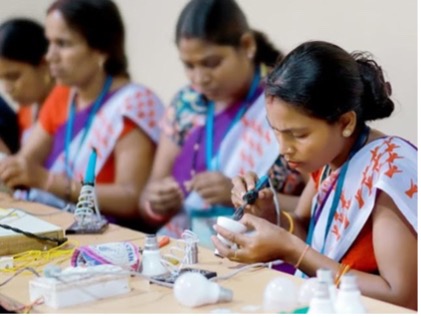 Being a country with more than one billion population and having a significant under-skilled youth is just a recipe for disaster. Setting up long-term skill enhancement programmes will not only empower the poor to a better livelihood but also uplift the society greatly.
National Aluminium Company Limited, (NALCO) has set up various skill enhancement centres in different parts of the country it operates, to improve the employability of women and youth. Some of the training are beautician course, food and nutrition, tailoring, motor winding, pump maintenance, farming etc.
Welfare of the farmer is welfare of the nation
Being a country with more than one billion population and having a significant under-skilled youth is just a recipe for disaster. Setting up long-term skill enhancement programmes will not only empower the poor to a better livelihood but also uplift the society greatly.
National Aluminium Company Limited, (NALCO) has set up various skill enhancement centres in different parts of the country it operates, to improve the employability of women and youth. Some of the training are beautician course, food and nutrition, tailoring, motor winding, pump maintenance, farming etc.
Welfare of the farmer is welfare of the nation
 If agriculture goes wrong in a nation, everything will eventually fall. That’s why farmers are one of the most valuable members of the society.
In India, agriculture is the source of employment for more than 50% of the population, accounting for nearly 16% of its GDP. However, in the last few decades, India’s focus on investment has shifted from farming to IT and other sectors. Thus, the Indian farmers have been lagging behind in many areas are not educated and thus are not adapted to technological development.
Mahindra & Mahindra has launched the Krishi Mitra project, in partnership with several NGOs, where it helps small and marginal farmers by educating them in updated techniques in farming. The project also provides various services leading to improvement in agricultural productivity, for the advantage of the farmers.
Besides initiating several individual projects aimed at improving livelihoods, many organisations from various sectors have come together to create a first-ever multiagency partnership called India Livelihoods Collective (ILC). Its sole objective is to scale-up livelihoods interventions in farm, non-farm and urban jobs ecosystems. It will also facilitate innovative solutions in rural livelihood opportunities in partnership with technology incubators and social businesses.
Image Source & References:
https://frontline.thehindu.com/
https://timesofindia.indiatimes.com/
The start of a new poverty narrative (brookings.edu)
Annual Report (brookings.edu)
Sustainability in CSR Projects for Village Development – India CSR Network
Home | India Livelihoods Collective (ilc.org.in)
Infographic: Education, livelihood draw most CSR spend | India News – Times of India (indiatimes.com)
Opportunities for women | Sustainable Living | Unilever global company website
National Farmers Day 2020: Top CSR Projects for Farmers’ Welfare in India – The CSR JournalIndia Development Review (idronline.org)
If agriculture goes wrong in a nation, everything will eventually fall. That’s why farmers are one of the most valuable members of the society.
In India, agriculture is the source of employment for more than 50% of the population, accounting for nearly 16% of its GDP. However, in the last few decades, India’s focus on investment has shifted from farming to IT and other sectors. Thus, the Indian farmers have been lagging behind in many areas are not educated and thus are not adapted to technological development.
Mahindra & Mahindra has launched the Krishi Mitra project, in partnership with several NGOs, where it helps small and marginal farmers by educating them in updated techniques in farming. The project also provides various services leading to improvement in agricultural productivity, for the advantage of the farmers.
Besides initiating several individual projects aimed at improving livelihoods, many organisations from various sectors have come together to create a first-ever multiagency partnership called India Livelihoods Collective (ILC). Its sole objective is to scale-up livelihoods interventions in farm, non-farm and urban jobs ecosystems. It will also facilitate innovative solutions in rural livelihood opportunities in partnership with technology incubators and social businesses.
Image Source & References:
https://frontline.thehindu.com/
https://timesofindia.indiatimes.com/
The start of a new poverty narrative (brookings.edu)
Annual Report (brookings.edu)
Sustainability in CSR Projects for Village Development – India CSR Network
Home | India Livelihoods Collective (ilc.org.in)
Infographic: Education, livelihood draw most CSR spend | India News – Times of India (indiatimes.com)
Opportunities for women | Sustainable Living | Unilever global company website
National Farmers Day 2020: Top CSR Projects for Farmers’ Welfare in India – The CSR JournalIndia Development Review (idronline.org)

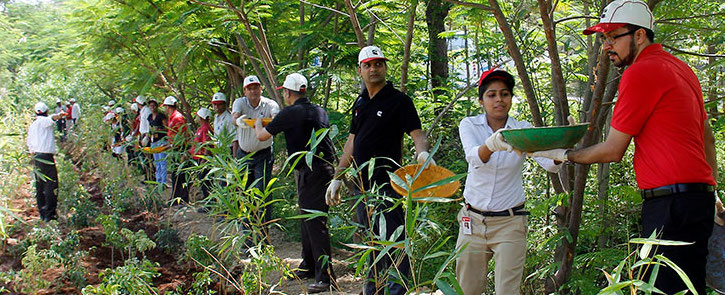



 This is where investments from private sectors as Corporate Social Responsibility (CSR) in healthcare can make a big difference to society at large.
What’s the current trend in CSR for healthcare in India?
While healthcare does receive a significant amount of funds from the corporations, much of it is focused on health camps and building hospitals or upkeeping its facilities. All these solutions are merely temporary patches. The country needs solutions that will eradicate some of the fundamental problems.
1. Imbalance in infrastructure and population ration
Given the growing population of the country, the current infrastructure is greatly imbalanced. To the point that the doctor-patient ratio in India is 1:1700. This is dangerously low. Major investments in India primarily focused on urban centres while in rural areas are left with a bare minimum.
Under its ‘Comprehensive Healthcare Initiatives’, the NHPC Limited has been providing medical facilities, qualified doctors and medical attendants, in many rural areas of Assam. They also actively partner with government agencies in bringing awareness regarding many diseases.
2. Rural areas need more doctors
Besides infrastructure, the country is short of doctors, particularly in rural areas. While many companies are working in improving in this area, there still a huge gap that needs to be filled. People in rural areas need access to quality healthcare and the government can provide incentives to doctors to spend time in rural/remote areas and take healthcare where it is desperately needed.
Hindustan Petroleum Corporation Limited runs ‘Project Dhanwantari’ across the country. Through this project, they provide basic medical needs for people in remote rural areas by door-to-door with Mobile Medical Vans (MMVs).
3. Contribution to medical insurance
Quality healthcare for many is unaffordable in India. Rather than offering assistance with one-time or temporary treatments, companies could rather offer health insurance in a brand agnostic way, or tie up with pharma companies and provide cheaper medicines.
4. Focus more on mental illness
Support and awareness for mental illness are almost unheard of in rural areas. While the government offers very little support, many organizations like Infosys, TCS, and IDFC are taking up this cause slowly and even those are focused on urban areas only.
There is a lot that organizations can do to make quality healthcare available to all. There is a lot of money and a lot of intent too. All we need is proper channelling.
5. Reaching the unreachable
India is a country with more than 60% of the population living in rural areas and a low level of health facilities. Many villagers are forced to travel hundreds of kilometres to access basic medical treatments and follow up check-ups. In this case, telemedicine can be a great way to help these communities get the best treatment or diagnosis possible.
This is where investments from private sectors as Corporate Social Responsibility (CSR) in healthcare can make a big difference to society at large.
What’s the current trend in CSR for healthcare in India?
While healthcare does receive a significant amount of funds from the corporations, much of it is focused on health camps and building hospitals or upkeeping its facilities. All these solutions are merely temporary patches. The country needs solutions that will eradicate some of the fundamental problems.
1. Imbalance in infrastructure and population ration
Given the growing population of the country, the current infrastructure is greatly imbalanced. To the point that the doctor-patient ratio in India is 1:1700. This is dangerously low. Major investments in India primarily focused on urban centres while in rural areas are left with a bare minimum.
Under its ‘Comprehensive Healthcare Initiatives’, the NHPC Limited has been providing medical facilities, qualified doctors and medical attendants, in many rural areas of Assam. They also actively partner with government agencies in bringing awareness regarding many diseases.
2. Rural areas need more doctors
Besides infrastructure, the country is short of doctors, particularly in rural areas. While many companies are working in improving in this area, there still a huge gap that needs to be filled. People in rural areas need access to quality healthcare and the government can provide incentives to doctors to spend time in rural/remote areas and take healthcare where it is desperately needed.
Hindustan Petroleum Corporation Limited runs ‘Project Dhanwantari’ across the country. Through this project, they provide basic medical needs for people in remote rural areas by door-to-door with Mobile Medical Vans (MMVs).
3. Contribution to medical insurance
Quality healthcare for many is unaffordable in India. Rather than offering assistance with one-time or temporary treatments, companies could rather offer health insurance in a brand agnostic way, or tie up with pharma companies and provide cheaper medicines.
4. Focus more on mental illness
Support and awareness for mental illness are almost unheard of in rural areas. While the government offers very little support, many organizations like Infosys, TCS, and IDFC are taking up this cause slowly and even those are focused on urban areas only.
There is a lot that organizations can do to make quality healthcare available to all. There is a lot of money and a lot of intent too. All we need is proper channelling.
5. Reaching the unreachable
India is a country with more than 60% of the population living in rural areas and a low level of health facilities. Many villagers are forced to travel hundreds of kilometres to access basic medical treatments and follow up check-ups. In this case, telemedicine can be a great way to help these communities get the best treatment or diagnosis possible.
 Parimal Enterprise, a pharma company, has taken up telemedicine as their corporate social responsibility to help the poor and rural households in remote areas. With their initiative like Dox-in-Box, Piramal’s telemedicine projects help people in remote areas access trained doctors. They have set up over 44 telehealth centres across the country, many in partnership with state governments. And help provide relevant information, screenings and follow-ups to patients.
6. Quality healthcare to remote areas
Rural healthcare is one of the biggest challenges the Health Ministry of India is facing. Though the government implementing a lot of policies and programs in trying to reach out to remote places, the effectiveness of these programs is questionable.
Wockhardt Foundation’s MOBILE1000 initiative is one program that has been spearheading in this area. Their aim is to provide free primary healthcare to poor Indians in rural India. With a fully equipped Mobile Health Van, an MBBS doctor and medicines providing ADCR (Awareness, Diagnosis, Cure, and Referral), they have helped over 171.47 lakh patients in different villages across the country.
7. Make India more healthy
India is known for having one of the largest populations of undernourished children in the world. So much so that even basic human rights are denied to millions, leading to stunted growth. Corporate houses can channelise their CSR fund towards building a healthy nation.
Dabur India’s ‘Nutrition Program’ is aimed at eradicating hunger, poverty and malnutrition through provision of food, nutrition supplement, clothes etc. Through this program, they have partnered with various government agencies and NGOs to supplement the nutrition needs of the poor and needy.
Parimal Enterprise, a pharma company, has taken up telemedicine as their corporate social responsibility to help the poor and rural households in remote areas. With their initiative like Dox-in-Box, Piramal’s telemedicine projects help people in remote areas access trained doctors. They have set up over 44 telehealth centres across the country, many in partnership with state governments. And help provide relevant information, screenings and follow-ups to patients.
6. Quality healthcare to remote areas
Rural healthcare is one of the biggest challenges the Health Ministry of India is facing. Though the government implementing a lot of policies and programs in trying to reach out to remote places, the effectiveness of these programs is questionable.
Wockhardt Foundation’s MOBILE1000 initiative is one program that has been spearheading in this area. Their aim is to provide free primary healthcare to poor Indians in rural India. With a fully equipped Mobile Health Van, an MBBS doctor and medicines providing ADCR (Awareness, Diagnosis, Cure, and Referral), they have helped over 171.47 lakh patients in different villages across the country.
7. Make India more healthy
India is known for having one of the largest populations of undernourished children in the world. So much so that even basic human rights are denied to millions, leading to stunted growth. Corporate houses can channelise their CSR fund towards building a healthy nation.
Dabur India’s ‘Nutrition Program’ is aimed at eradicating hunger, poverty and malnutrition through provision of food, nutrition supplement, clothes etc. Through this program, they have partnered with various government agencies and NGOs to supplement the nutrition needs of the poor and needy.
 Health is a responsibility for one and all. For a country to be prosperous it requires its citizen to be in a healthy condition and think beyond basic survival. While the government is working on many projects, and a helpful hand from the corporate houses can make a huge difference.
Health is a responsibility for one and all. For a country to be prosperous it requires its citizen to be in a healthy condition and think beyond basic survival. While the government is working on many projects, and a helpful hand from the corporate houses can make a huge difference.